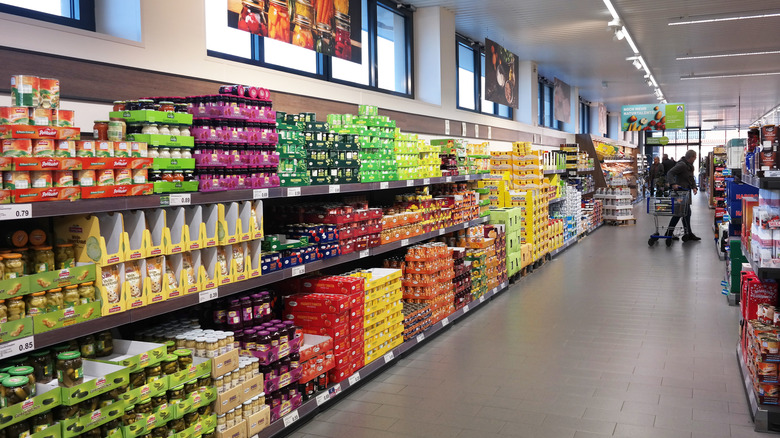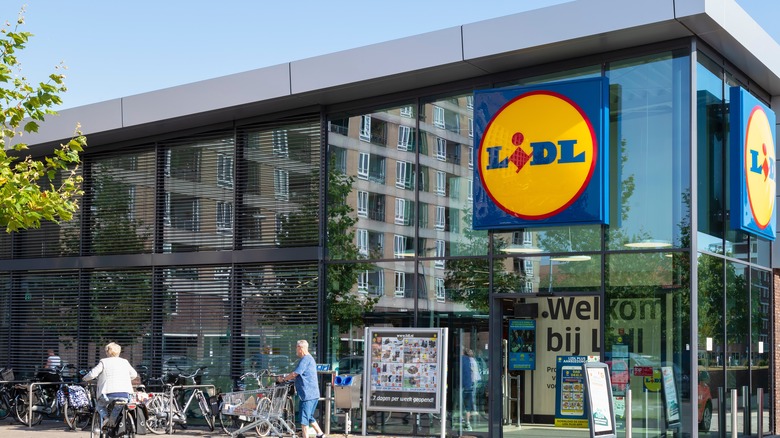The Grocery Store That's Even Cheaper Than Aldi (In The UK)
At a time when food prices across the globe are sky high and simply existing costs a pretty penny, supermarkets that still make an effort to keep their prices low are a savior. For many shoppers in the U.S., that means going to Aldi, but over in the U.K., there's another grocery chain that often takes the cake on being even cheaper: Aldi's low-cost German cousin, Lidl.
While Aldi has been the cheapest supermarket in the U.S. for years, Lidl sometimes beats Aldi's prices across the pond. In fact, Lidl was named the cheapest supermarket in the U.K. for the third consecutive year in 2022 by The Grocer, surpassing Aldi by a difference of 86 pence — that is, about $1.05 (via Fresh Produce Journal). The survey found that Lidl had the lowest prices among its competitors for five items — asparagus, feta cheese, honeydew melons, tomato purée, and Cadbury Fruit & Nut — and price matched at least 22 others. Another study by Which? found that Lidl was the cheapest supermarket in the area from January to May of 2022, beating Aldi for the first five months of the year.
Aldi and Lidl compete to have the cheapest prices in the UK
Shoppers in the U.K. often go to Lidl for its cheap prices, especially for those select produce items that the store offers at a lower price than anyone else. However, these savings aren't always easy to predict. As noted by Which?, though Lidl was the cheapest for almost half of 2022, Aldi beat Lidl's prices for the rest of the year. Another survey confirms that while an average basket at Lidl cost £77.50 ($94.46) in February of 2023, the same cost £74.81 ($91.19) at Aldi, meaning Aldi beat Lidl's prices by around $3.28 in the following months. Though Lidl was the cheapest store, Aldi seems to have put a hamper on its three-year streak.
It's no game of chance that Aldi and Lidl keep competing with each other for their low prices in the U.K. It turns out, the two chains have a lot in common besides their German origin, including several cost-saving policies. Both Aldi and Lidl keep a low stock of perishables to minimize waste and have a smaller but more efficient inventory. Like Aldi, Lidl too hires fewer employees to keep labor costs to a minimum, buys pre-packaged products from suppliers that come ready to hit the shelves, and asks customers to bring their own shopping bags, charging extra for bags purchased in-store. Considering their shared policies, it comes as no surprise that Lidl is a fierce competitor of Aldi in the U.K., even coming out on top of the latter for its lower prices sometimes.

